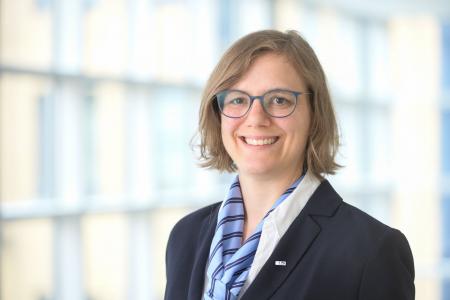On January 25th, 2018, about 25 representatives of Lower Saxony's SMEs attended the first event organized by Niedersachsen ADDITIV - Center for Additive Manufacturing at the Hannover Fairgrounds to learn about the basics, the-state-of-the-art and the applications of additive manufacturing processes. In addition to the technical lectures, the focus of the event "Additive Manufacturing: Opportunities for SMEs" event was on the exchange: In four workshops, the participants discussed technological, economic, safety and educational aspects of 3D printing.
Additive manufacturing processes, also called 3D printing, will radically change the production and manufacturing processes. Niedersachsen ADDITIV – Zentrum für Additive Fertigung provides SMEs in the federal state with the necessary know-how to not only survive in the competition, but to be able to progress. Part 1 of the first event series of the center took place at the end of January. On March 14th, 2018 follows part 2: "Additive Manufacturing: Humans as a Success Factor", and finally on May 23rd, 2018 comes part 3: "Additive Manufacturing: Safety as a Success Factor".
There is immense interest among Lower Saxony's SMEs to integrate additive processes into the production and manufacturing chains. Many complex 3D components made of metals or polymers can already be produced with 3D printing processes, such as stereolithography, laser sintering and selective laser beam melting. These new processes bring a breath of fresh air into product development. Apart from the lower material usage and weight, additive processes can make the overall product more attractive through additional or improved functions: For example by means of optimized cooling channels in gas turbine blades, which give the blade a higher heat resistance and the turbine a higher efficiency.
Homework for research
For the future, companies are looking for improvements in terms of quality and reproducibility. "The research institutes participating in the center, the Laser Zentrum Hannover e.V. (LZH) and the Institute for Integrated Production Hannover gGmbH (IPH), are now challenged to develop additive processes that can be used to produce surface qualities that are largely free of post-processing," explains the deputy project manager Dr.-Ing. Gerrit Hohenhoff from the LZH. "In addition, the processes and the quality should be reproducible over longer process times and also be suitable for larger quantities."
Unrestrained growth
Analysts predict continued strong growth for 3D printing. Increasing sales figures are recorded in particular by German system manufacturers: From 2010 to 2014, sales figures tripled, and the upward trend is currently continuing. Possible savings of 30 to 60% for small batches are often offset by relatively high investment costs for the equipment and for the qualification of the personnel. Polymer 3D printing systems are cost effective and pay for themselves quickly, whereas systems for metals are more costly. Therefore, the decision-makers carefully weigh up whether additive manufacturing is to be carried out in-house or externally.
Questions about occupational safety, environmental protection, data protection, product piracy and liability arise in both conventional and additive manufacturing processes. For the participants of the event, missing standards and certifications still present unnecessary hurdles in the introduction of 3D printing processes. For example, waste management companies are often not yet prepared for the environmentally sound disposal of non-reusable powders.
Engineers with clean hands
Training measures are currently viewed by SMEs as rather subordinate. On the other hand, the participants called for sound 3D printing training for design engineers. "Previously, machine-builders had black edges under their fingernails, today they use computer keyboards more frequently than machine elements", summarized a participant the changed job description of engineers. "In design, manufacturing and production, it is essential to rethink fundamentally and to learn a lot if we want to successfully integrate additive manufacturing and Industry 4.0 into the operation," explains Ilka Zajons from the LZH Laser Academie. "Here, the education providers are required to become active, too."
The numerous results of the dialogue event will be integrated into the further activities and events of Niedersachsen ADDITIV. Further information and dates can be found at www.niedersachsen-additiv.de

